|
Author: Julie Walker
So I want you to think back to your old middle school science textbook. Did it have an image of ant burrow cast like this one in it?
Mine did. And I remember because I distinctly remember having my mind blown by thinking about how crazy it is that those tiny little ant that I would see everyday on the playground or in my yard could build such elaborate tunnels and caverns. The inherent coolness of the people who first figured out how to get a better look at the mysterious world happening right under our feet has stuck with me to this day.
Which brings my to the now. As you know I don't study ants. However, recently I have been thinking back a lot on this picture when trying to study something a little closer to my proverbial science home of coastal wetlands. Fiddler and other benthic crabs can be found in huge numbers in all sorts of wetlands, and much like ants are quite good at engineering the subterranean environment. This got me thinking, I have never seen a cast like those of ants colonies for burrowing crabs, why? What are those little guys hiding under there? So need less to say I was very interested in trying to make one. My first thought was no one in their right mind would let me go anywhere near molten metal ( and rightly so), some literature sites making crab burrow casts out of resin, but being able to set and dig up these casts and working between tidal cycles, as well as the significant cost of resin also seemed like quite an undertaking ( I am trying to graduate y'all). It wasn't until talking about this issue with a non-science friend that I found my solution. She had mentioned that she vaguely remembered someone on an environmental educator on a school field trip, using some sort of foam solution to fill in burrows (leave it to environmental educators to be the crafty problem solvers that the science world needs more of). So it was off to the hardware store for me where I found some great stuff, no really its called "Great Stuff".
Traditionally used to fill gaps for pluming... I have a feeling in the near future there it will be more famous for being used to make these beauties...
Ok, so it may not be six feet tall. BUT. ISN'T IT SUPER COOL??? Just me? ok...
Anyways moral of this story is sometimes you can't always get exactly what you want (six foot 3D models of subterranean tunnel systems made out of molten metal), but if you try sometimes you might just find you get what need ( a modest sized, light weight foam structure, of the below-ground habitat of your study species)
2 Comments
Author: Julie Walker *Just warning you this blog post is basically just an advertisement for you to read my recently published paper. Now, I am very convincing and if you read this blog you will end up reading my paper, so if you would prefer to save some time and skip right to the good stuff you can go ahead and start reading here (that's right its open access baby). If you want to read some more of my rambling, before reading some of my scientific rambling, then by all means enjoy the next few paragraphs! * Phew. Writing can be hard when you aren't just making a bunch of corny puns and dad jokes ( if you haven't noticed yet I enjoy very high brow humor). But after several months of writing, editing, graphing, analyzing, I finally have a genuine published scientific article! It has definitely been quite the learning process getting to this point. You would think after read all of these academic journals writing one would be a breeze, which maybe it is for some people, but because my list of god given natural talents is very limited to mostly useless skills like being pretty decent a flip cup (which was a much bigger asset to me in undergrad than it has been in graduate school) it was a bit of a challenge. Without giving away too much of the punchline from my paper, one of the challenges was forming a story around insignificant results. No one warned me that when your perfectly valid hypothesis derived from scouring the literature for hours is rejected, you have to factor in quite a bit of "what f**k does this mean" time into writing. Nor was I warned that insignificant results aren't quite "sexy" enough for mainstream journals. However, after undertaking the challenge of getting a paper published that had very little in the way of statistical significance- I think I my work still has a lot of scientific significance. So as a newly published author here are my words of wisdom. I have heard many people referring to insignificant findings as a "failed experiment", this my friend is a toxic way of thinking. Just because the relationship, or mechanism, or whatever you hypothesized was happening isn't happening, does mean mean you failed. You have still added to the body knowledge. Sometimes insignificance is just as significant when looking at an ecological system. Sure writing a paper about how species A does give a hoot about whatever the heck Species B is doing is a little harder to write a compelling story around... but isn't it still important to know? If I was in charge of managing species A, I sure would want to know. By publishing your results you have narrowed the field of possibilities, allowing yourself and others to focus precious time and resources on other avenues. So kick the norm, publish your "failed experiments", and the significance of your contribution will be way < 0.05, I promise. Anyhow... long story short.... read my paper and forward it to 10 friends or something really bad will happen... I mean, I'm not saying your head will fall off.... but is it really worth the risk? Told you I was convincing.
Read it here! Abstract teaser (if your head falling off isn't convincing enough) Decreasing frequency of freeze events due to climate change is enabling the poleward range expansion of mangroves. As these tropical trees expand poleward, they are replacing herbaceous saltmarsh vegetation. Mangroves and saltmarsh vegetation are ecosystem engineers that are typically viewed as having similar ecosystem functions. However, few studies have investigated whether predation regimes, community structure, and ecosystem functions are shifting at the saltmarsh-mangrove ecotone. In this study, we manipulated predator access to marsh and mangrove creekside habitats to test their role in mediating vegetation and invertebrate structure and stability in a two-year experiment. We also conducted a survey to evaluate how shifting vegetation is modifying structural complexity, invertebrate communities, and ecosystem functioning at the ecotone. Excluding larger (> 2 cm diameter) predators did not affect vegetation or invertebrate structure or stability in either saltmarsh or mangrove habitats. The survey revealed that the two habitat types consistently differ in structural metrics, including vegetation height, inter-stem distance, and density, yet they support similar invertebrate and algal communities, soil properties, and predation rates. We conclude that although mangrove range expansion immediately modifies habitat structural properties, it is not altering larger predator consumptive effects, community stability, community composition, or some other ecosystem functions and properties at the ecotone. Author: Julie Walker Me presenting at my first national conference, CERF (Coastal and Estuarine Research Federation) I don't know about you all, but I have always had a love hate relationship with public speaking. On one hand one of my favorite things about science is getting making it accessible through communicating it in the form of an interesting story. The feeling of validation you get when you convince someone to be genuinely interested in your work doesn't suck either. Yet on the other hand the thought of talking to someone on the phone none the less to a crowded room of people makes me want to vomit. If you struggle like I do to manage being a good science communicator and your anxiety at the same- here are some tricks I have learned that might just be helpful to you.
*Full disclaimer: I am not an expert in public speaking and I the thought of public speaking still makes me feel like I drank a gallon of coffee- but this has made it a little bit easier* 1. Start small If possible, try and make you first talk to the smallest friendliest crowd possible. Check to see if your department or professional society has smaller meetings for graduate students or local chapter meetings that you can present at. Keeping the stakes low will help you focus not on the stress of a large room and more on just working on your presentation skills. 2. Make it idiot proof When you are developing your presentation try and make it as easy as possible to follow - for both your audience and yourself when you have frazzled stress brain. How do you do this? Keep only the information that is absolutely necessary to get you point across on the screen. Anything else will distract your audience, or might steer your to ramble about a tangent for the entirety of your allotted time. Having a cue word or graphic to come across the screen to remind yourself to emphasize an important point is also a good tactic if you are afraid that you might forget it in the stress of the moment. 3. Practice, Practice, Practice This one is probably the biggest "duh..." of all but "practice makes perfect" is a cliche for a reason. But once you have your presentation made practice, practice, practice. I have subjected my SO, my labmates, blank walls, and even my dog to my stuttered rambling. The biggest tip I can give is even if you don't want to memorize a script for your presentation, at least memorize the transitions, this will help make you presentation flow and keep you from being surprised by the next slide. 4. Pick a friendly face Find someone who looks like they ate rainbows for breakfast, and have birds dress them every morning. That's who you are giving this talk too. You don't need any passive scowlers in your life, good vibes only. The more engaged the person seems the more relax you will be. However- no matter how many rainbow someone eats, they may still get freaked out if you stare them down the entire time, so maybe pick a couple smilers and bounce between them- better yet pick a friend to be a ringer to plant in the audience and stare as much as you want. 5. Imagine everyone in the room doesn't hate you they are probably just tired My biggest fear when public speaking is that everyone in the room is judging my work, my speaking ability, and my appearance. However, from being an audience member in many talks, most people aren't busy sitting around judging other people they are just trying to stay awake after a long day of sitting in a crowded conference room and making small talk with peers. So instead of fixating on what other people are thinking- fixate on making them not bored. If you manage to make your talk so engaging that it distracts them from checking their email for 15 minutes, you have done your job as an effective science communicator. 6. Practice, Practice, Practice again Once you have your talk done, why not take it out for a spin once and a while? The more times you give the same presentation the easier it will be. Without the stress of making the presentation and figuring out exactly what you are going to say, you may be able to reduce your stress from several days before a presentation to maybe just a couple hours or maybe even a couple minutes if your lucky. Well that's about all the tips I have- if you happen to have any more for improving presentation skills- leave them in the comments! Author: Julie Walker There are two types of people out there, people who are good at focusing on one task at a time, and people who try to do 100 things at once till they aren't able to do anything at all... from this picture I think you can tell which one I am. As I am in writing mode, I find myself constantly with 5 different windows open with way to many tabs trying to unsuccessfully load, and to scared to close any of them cause I am still trying to find that one paper, that has that one passage, that would be really good to site, at some point. Kudos to those of you that have the focus to keep a clean desktop... or just life in general... but for those of you that do not, you are not alone. I wish I could share sage wisdom, or ten tips, or a Marie Kondo method of decluttering your brain, but alas I can not. However, I can say that telling your adviser that you deleted you last draft of your manuscript because it no longer "sparks joy", is probably not the way to go. #comesavememarie
Author: Julie Walker Seeing how science can be turned into sound environmental policy has always been a passion of mine. So this semester I had the pleasure of participating in the Emerging Leaders in Science Policy Advocacy Memo writing competition where worked as a team to write a memo to an elected official proposing changes to science policy. Our group decided to focus on strategies to help combat red tide and we won! This means that we get to take our memo on the to present to Florida legislators in Tallahassee, as well as receive funds to participate in a science policy or communication conference. I look forward to continuing to learn more about the important role of policy and communication in the world of research.
Author: Julie Walker Dear Reader,
Do you ever lie awake at night wondering... why does Julie have so few pictures of herself on that super awesome blog? Does she have an unseemly growth on her face? Is she in the witness protection program? Did she become Amish and has sworn off the use of all technology? Well I hate to disappoint, but the answer is usually as simple as I spend most of my time waist deep in mud, and I have a bad habitat of breaking technology, so cameras in the field are not my cup of tea... However! on this particular field day I had the pleasure of having the assistance of my Fellow- "Fellow" Heather, who is not only a top notch scientist, but also a stellar photographer. Luckily she was willing to trade in her scenic tropical mangrove vistas for a good ole fashion mud bath in the saltmarsh, so that we could not only get some good data, but also photographic proof that my face growth has cleared up! As you can tell we work hard, and play hard, often at the same time :) Well hopefully they will invent a Julie-proof camera in the near future so you all can see more of our muddy adventures... or I'll just work on cultivating my internet celebrity, so that I can get a paparazzi following. Yours Truly, Julie
Author: Julie Walker
If there is anything I can rely on, its my pup Maple to remind me that its important to walk away from the screens for a while, and focus on what is really important... such as feeding her, walking her, and petting her.
Time management is delicate balance, especially when you are juggling many different responsibilities, like most graduate students do. We are often told to take time for self-care, but when you really need it, there always seems to be more pressing priorities or you can't get the support you need from superiors. I would love to say you should just stick to the establishment, and put your mental health needs first, but unfortunately the world still isn't that "woke" (- are the kids still using this word? I can never keep up..) and it might come back to hurt you. Without becoming too much of a bummer by dragging on at length about academic culture and mental health stigmas- my only advice is to build up your support system. Talk to more senior graduate students or post-docs who have been through the process, take advantage of counseling services if your school provides them, or just vent to your pets, you might sound crazy, but hey they don't judge and they are unlikely to tell anyone. Try to surround yourself with positive people (or pawsitive pets), so the next time your imposter syndrome rears its ugly head, or you start comparing your success against your peers, or if you just feel like if you have to reformat that graph one more time your head is going to explode- you can have someone to talk it out with, or just someone to bring you coffee... or wine. Even though it is easy to become defeated in the face of a culture that values productivity over all else, it is still important to keep reminding yourself that mental health awareness is more than just that one week the university puts massage chairs in the union. **sidenote- I half wrote this post because I am secretly a hypocrite and hate talking to people about emotions, but deep down I know its really important... and the other half because my dog is so freaking adorable and I am trying to build her internet presence. If anyone wants to hire me or Maple as a brand ambassador or social media influencer, I will quit school tomorrow**
Author: Julie Walker
*please re-read the heading to the tune of "teach me how to dougie" by Cali Swag*
Yes, I grew up on the water, and yes I sort of study fish now... but one of my short falling (no jokes about my height please) is not knowing how to cast net. Thankfully, friend of Osborne Lab Nicole Bishop, was kind enough to teach me the ways of the waterman, and agreed to make this video with me to educate the masses. So please enjoy our educational programming, and maybe pass it on and teach someone else how cast net.. or dougie... to each his own Today we have a special guest blog from our summer intern Holly Keepers, reflecting on her summer here at Whitney Laboratories Author: Holly Keepers I feel like just yesterday I was writing a hello message to you all. And yet it's already my last day here! I’ve been studying hermit crab behavior and how they are affected by noise pollution. Doing this experiment meant I needed hermit crabs… A LOT of hermit crabs. In total, I collected about 120 crabs from the shoreline in two days. I kept all of these crabs in two holding tanks in the lab. Sadly, a lot of them ended up dying. I feel like a failed parent. I think I’ll have to hold off on having ACTUAL kids for a looong time considering how many of my “fake babies” died this summer…. Anywho, after I was finished with my experiments, I let them all go back into the sea. I secretly wonder how the other hermit crab’s reactions will be when they are brought back into the wild. They will probably be telling their hermit crab friends I GOT TAKEN BY ALIENS …. And no one will believe them :( Poor guys…. Also how quickly will they change their shells since I painted on them?? Someone who works here has told me she will email and message me whenever she happens to find a labeled hermit on the beach in the future. Maybe I’ll have updates for you later, even after I stop reporting to Julie? Future-vision…. (The line of labeled hermit crabs being released back into the wild! Good luck little guys!) Anyway, it's been an amazing summer. This is my first time working as a real intern and a scientist! I loved everything I did and I learned a lot. Namely, things don’t always go as planned, and although that may be frustrating, sometimes it all works out for the better. SCIENCE MOSTLY MEANS PERSEVERING. Things go wrong ALL THE TIME. I mean, I wasn’t supposed to have this internship in the first place; I was supposed to be placed in Raleigh, NC. Things fell through and VIOLA! I’m suddenly in the car on the way to FLORIDA?? It's absolutely crazy.
I’m really happy I had this summer to experience what it actually means to be a “scientist”. PLUS most of the people I worked with were women?? That’s super awesome. I feel like I’m repeating myself a lot, but I can’t help it. Trying to condense my feelings about the summer into a short blog post is really really hard. All I can say is if you have an opportunity to work at the Whitney Lab for Marine Sciences…. DO IT. You won’t regret it. 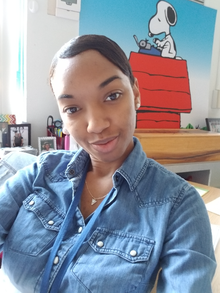 Author: Julie Walker (with guest appearances from the Osborne Lab interns) Its field season here at the Whitney Lab, which means it is also Intern season! This year the Osborne lab has been bless with 7 bundles of joy! We are hosting 2 elementary school teachers from the Multidisciplinary Research Experiences for Teachers (MRET) and 5 interns from the Doris Duke Conservation Scholars Program. They have been hard at work helping to conduct research, learning, and hopefully having a lot of fun! Meet the MRET interns... Dekoya Brown Hi there! My name is Dekoya and I am a 3rd grade teacher from Orlando, FL currently living in Gainesville, FL. I teach at Joseph Williams Elementary and this summer I had the opportunity to work in UF’s MRET program which is for K-5 teachers to bolster student interest and enthusiasm for STEM fields, and what better way than getting hands-on field experience! This awesome yet intense experience of getting to work with a graduate student at the University of Florida’s Whitney Lab to help with their research was nothing short of amazing. Utmost respect to those who go out in the field, through muddy, swamp and just get in there! While there were long hot days, for research purposes it was well worth it. I am excited to see how all our hard work helps with Julie’s project and her end result. Sarah Hersey I am a native of Ft. Lauderdale, Florida and recently received a Master's degree in Elementary Education from the University of Florida, during the school year I teach third grade in Gainesville. In my free time I enjoy cycling, travel, immersing itself in cold spring water, and artistic pursuits. I am participating in the MRET program to gain an understanding of lab practices and field work experience and am going on to use this knowledge to more effectively engage students in authentic STEM tasks. 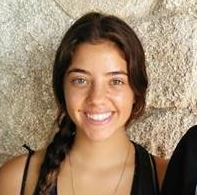 Want more info about the Multidisciplinary Research Experiences for Teachers (MRET)? Check out their website https://www.cpet.ufl.edu/teachers/mret/ And now the Doris Duke Conservation Scholars... Kristina Rodriguez My name is Kristina Rodriguez and I am currently a junior at the University of Florida double majoring in Environmental Science and political science. Born and raised on Miami Beach, protecting marine and coastal ecosystems has become my passion. Interning for Julie Walker on her research, to study the effects of mangrove migration into salt marshes habitats on faunal assemblages, I can’t wait for the summer that’s ahead! Striving to make an impact every chance possible, by becoming President of the Surfrider Foundations chapter at UF, a grassroots organization that strives for marine and coastal protection, to conducting dune restoration and sea turtle rehabilitation in Miami, I love protecting our oceans. I plan to pursue graduate school to specialize in environmental policy. I am also highly interested in sea turtle rehabilitation and would love to help out and volunteer here when I have free time/ on the weekend! Holly Keepers My name is Holly, I am currently a junior majoring in Conservation Biology with an Applied Ecology minor at NC State. I am originally from Atlanta, Georgia and chose to attend NC State due to the Zoology program, but then later changed her major to Conservation Biology. I enjoy studying the wildlife aspect of conservation biology the most, and I hope to one day work for the U.S Fish and Wildlife Service! In my spare time I like to read comics, make pottery, and of course watch Netflix. I am also hoping to learn how to surf while she is working in Florida. Desiree Smith My name is Desiree Smith and I attend the University of Florida. I am majoring in Wildlife Ecology and Conservation. I am apart of the Doris Duke Conservation Scholars program. This summer I will be interning with Julie Walker assisting her as she completes her research on mangrove habitats in Florida. I want to see how predator and prey interactions vary in the three different habitats (Red mangrove, Black mangrove and smooth cord grass). As the climate changes Mangroves are shifting their habitat ranges so this research can help show how the animals are adapting to these environments. For example, do smaller prey animals prefer one habitat over another or how predators behavior and techniques can vary in the various environments. 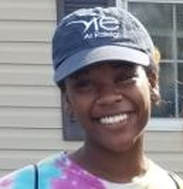 Kierra Christie I am a rising Junior studying Environmental Technology and Management with a minor in Environmental Toxicology at North Carolina State University. Some of my interests pertaining to my major are studying how water quality, air quality and soil quality; as well as, plant presence are affected by each other. In addition, I am interested in how pollution affects these fields and ways to minimize and manage problem areas. Outside of school work, she enjoys hanging with friends, volunteer work and watching Netflix. Tasha Scarlett Hi! My name is Tasha, I am studying Animal Science with minors in Wildlife Science and Zoology at North Carolina State University. Originally, I went to North Carolina State in hopes to pursue a veterinarian career in zoological medicine. I am now planing to combine her two passions through a career in conservation medicine. This summer I am working with Julie Walker through the Doris Duke Conservation Scholar program, with the goal to get more research experience with wildlife and their interactions with the environment. I hope to eventually start my own non-profit to help expand restoration efforts worldwide. If you would like more information about the Doris Duke Conservation Scholars Program check out their website https://programs.ifas.ufl.edu/doris-duke-conservation-scholars/
|
Fellows BlogLearn about a day in the life of our Fellows, from the field to the classroom as they compete their journey through graduate school. Archives
January 2020
Categories |
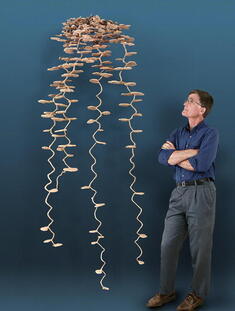
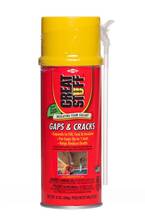
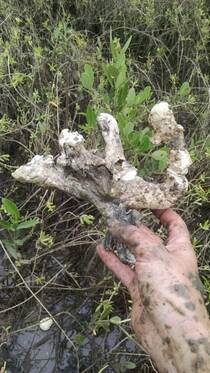
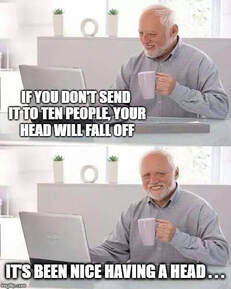
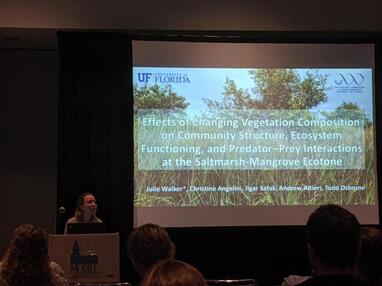
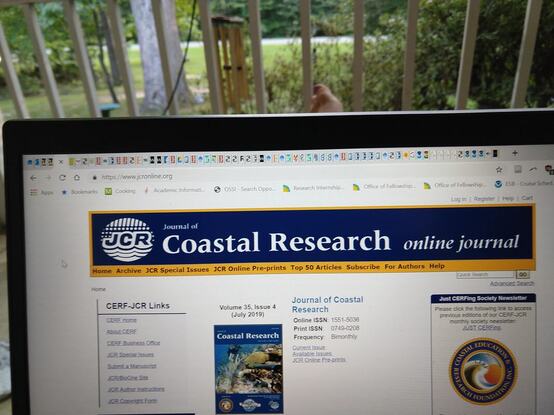
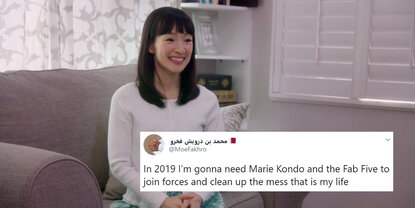
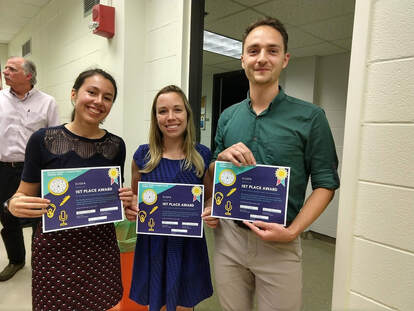

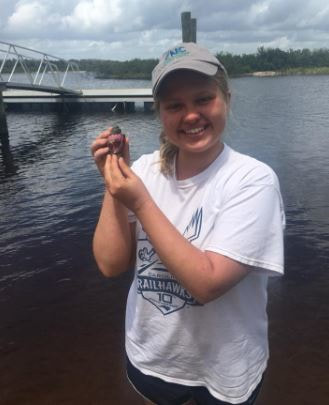
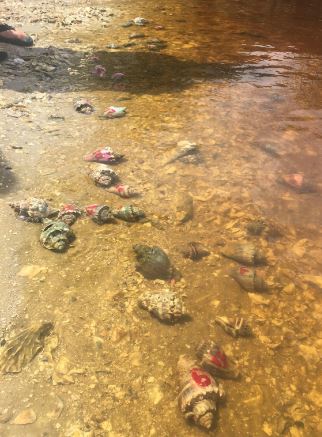
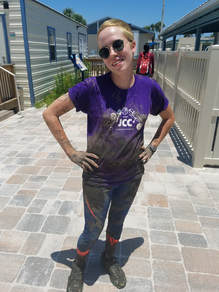
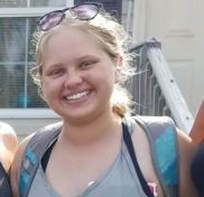
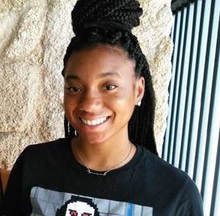
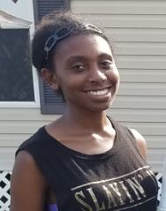
 RSS Feed
RSS Feed
